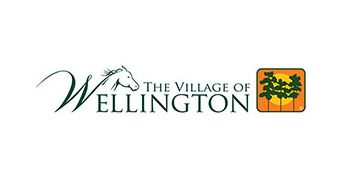Wellington’s Equestrian Preserve Committee held its first in-person meeting since the start of the pandemic on Wednesday, Nov. 5 and set about to review the village’s comprehensive plan elements that relate to the Equestrian Preserve Area.
Despite efforts to reach out to stakeholders during the past year, the language included in the plan had powerful detractors.
The nearly three-hour meeting heard a presentation from village staffers who mulled over a variety of input, plus a letter from Equestrian Sport Productions President Michael Stone that was reviewed silently but not read into the record. Stone was unhappy that his team had not been given enough input into the process of developing the comprehensive plan.
Committee members seemed to be of a mind that they had asked for and received input but agreed to schedule a workshop before their next meeting to assure that everyone who wanted to have a say got an opportunity to do so.
“We spoke with Michael,” Committee Member Glen Fleischer said. “Clearly, we did not meet something that was important to him, so I think we should have another meeting.”
While Committee Chair Jane Cleveland had asked probing questions at previous meetings, she said they did not necessarily reflect her opinion regarding the document.
“I do not have an opinion,” Cleveland said. “I try to run this meeting, and I asked rhetorical questions that I may already know the answer to in order to get information on the record.”
She had particularly brought up Florida Statues 604.50, which exempts nonresidential farm buildings from land development regulations under certain situations, and its impact on Wellington’s comp plan.
Equestrian lobbyist Dean Turney was given more than the usual three minutes allowed for comment in his conversation with the committee. He was concerned that Cleveland was against the state law and asked committee members to review the meeting minutes.
“Public comment is not the same as stakeholder input,” said Turney, complaining about developing a comp plan without enough input.
The stated objective of the committee of developing an annual equestrian “state of the industry” report aroused further suspicions with key equestrian leaders who withheld what they considered proprietary information.
“We are seeking to collect information to analyze the situation,” Cleveland said. “We are not seeking to coordinate or direct the industry.”
The comp plan refers to the “exurban equestrian lifestyle,” which Turney took issue with. “Exurban is confusing, and equestrian lifestyle sounds elitist,” he said.
The committee offered suggestions to staff to modify the plan and resubmit for further public and stakeholder input.
Overall, the committee’s consensus was that the plan is an appropriate draft. “We have identified key elements, and it takes into account the core objectives,” Fleischer said.








